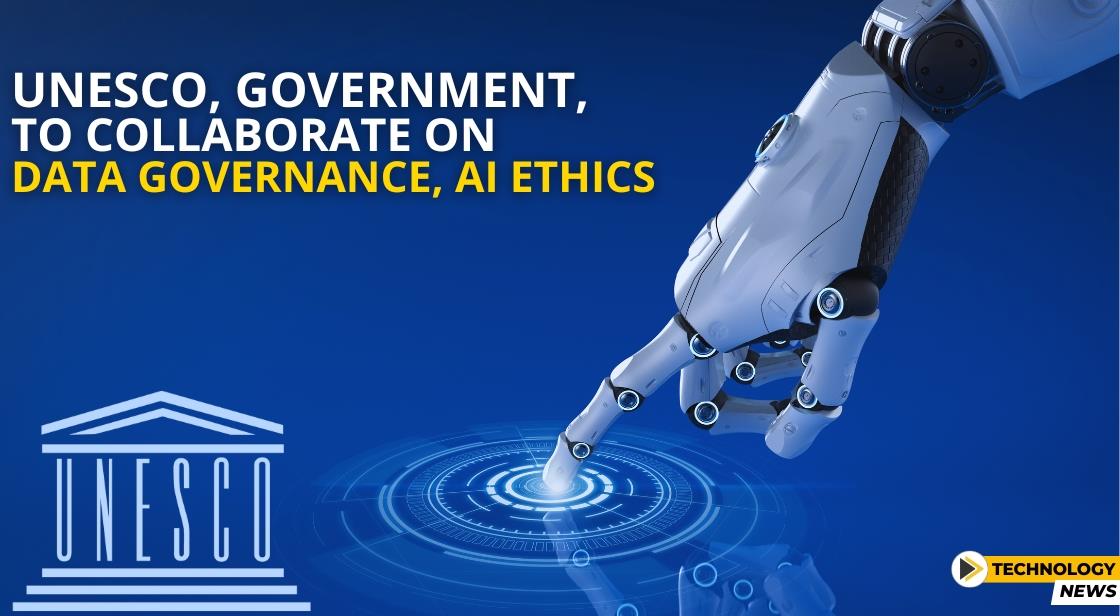UNESCO and Government Partner on Data Governance and AI Ethics

Podcast
News Synopsis
The National Stakeholder Workshop on Safe, Trusted, and Ethical AI was organized by the Ministry of Electronics and Information Technology (MeitY), Government of India, and the United Nations Educational, Scientific, and Cultural Organization (UNESCO) South Asia Regional Office.
The event took place at the Taj Palace Hotel in New Delhi. This workshop aimed to address the crucial aspects of ethical AI, reflecting the recent approval of the IndiaAI Mission.
Launch of IndiaAI Mission
The IndiaAI Mission is a significant initiative by MeitY, the National e-Governance Division (NEGD), and NASSCOM. With a budget allocation of Rs 10,372 crore, the mission seeks to enhance India’s technological self-reliance.
Key components include the IndiaAI Compute Capacity, IndiaAI Innovation Centre (IAIC), IndiaAI Datasets Platform, IndiaAI Application Development Initiative, IndiaAI FutureSkills, IndiaAI Startup Financing, and Safe & Trusted AI.
Supporting Technological Self-Reliance
According to a press release from the Press Information Bureau (PIB), the workshop was designed to support technological self-reliance in India.
The focus was on various aspects such as computing capacity, innovation, dataset platforms, application development, skill development, and startup financing, all under the umbrella of promoting safe and trusted AI.
UNESCO's Role in Ethical AI Integration
Tim Curtis, UNESCO Representative to India and Director of the UNESCO South Asia Regional Office, emphasized UNESCO’s support for integrating ethical considerations into India’s national and state-level AI strategies.
The workshop aimed to facilitate discussions on how to incorporate these ethical considerations into AI strategies and programs to ensure AI deployment aligns with public welfare and international standards.
Participation from Key Stakeholders
The event saw participation from senior officials from central line ministries, state governments, NITI Aayog, and industry partners like NASSCOM. It served as a platform for critical discussions on integrating safe, trusted, and ethical AI into national and state-level strategies.
Addressing Ethical Concerns in AI
Prof. Ajay Kumar Sood, Principal Scientific Adviser to the Government of India, highlighted India's balanced approach towards AI, recognizing the ethical and societal implications. India has launched several initiatives, including the IndiaAI Mission, to foster AI development and adoption while addressing ethical concerns.
Economic Impact of AI in India
AI is projected to contribute nearly $500 billion to India’s GDP by 2025, driven by advancements in healthcare, financial services, and telecommunications sectors. This economic potential underscores the importance of ethical AI deployment to ensure public trust and adherence to international standards.
Statements from Key Figures
Abhishek Singh, Additional Secretary at MeitY, emphasized the importance of building safe and trusted AI frameworks. He stated, "When it comes to the use of the word ethics, we prefer to define it in terms of building a safe and trusted AI which will not result in user harm; This would guarantee the establishment of a system that encourages innovation and limits the hazards associated with AI."
Conclusion
The National Stakeholder Workshop on Safe, Trusted, and Ethical AI marked a significant step in India's journey towards integrating ethical considerations in AI development. The collaboration between UNESCO and the Indian government aims to ensure that AI technologies are deployed responsibly, fostering innovation while mitigating risks.





